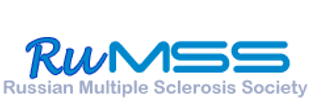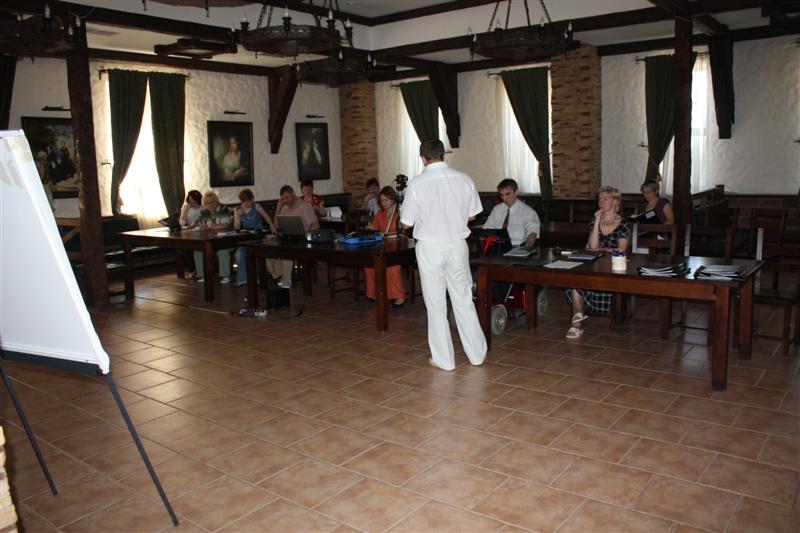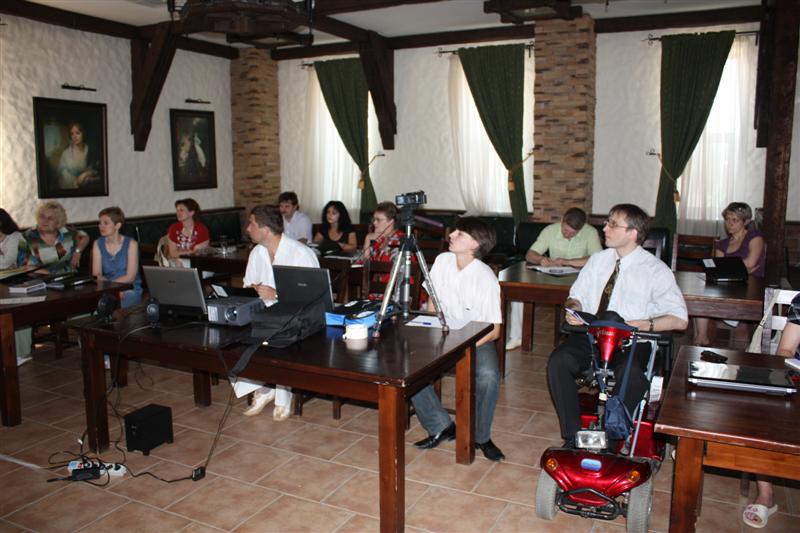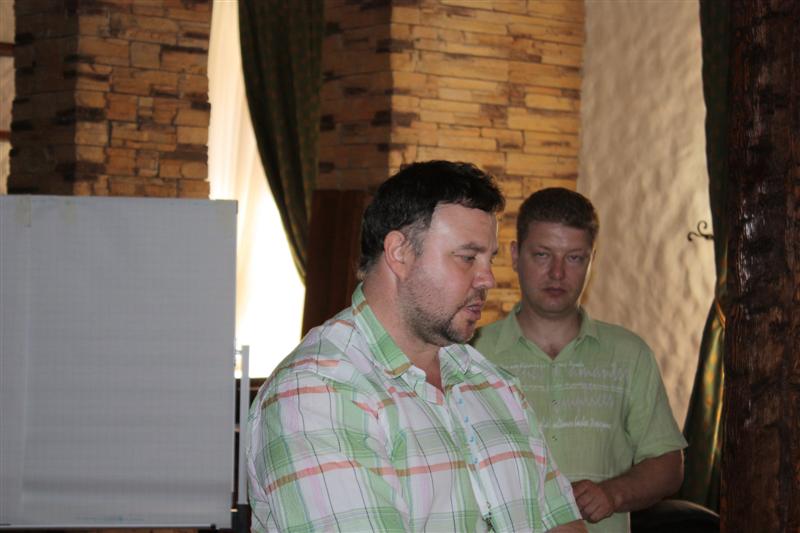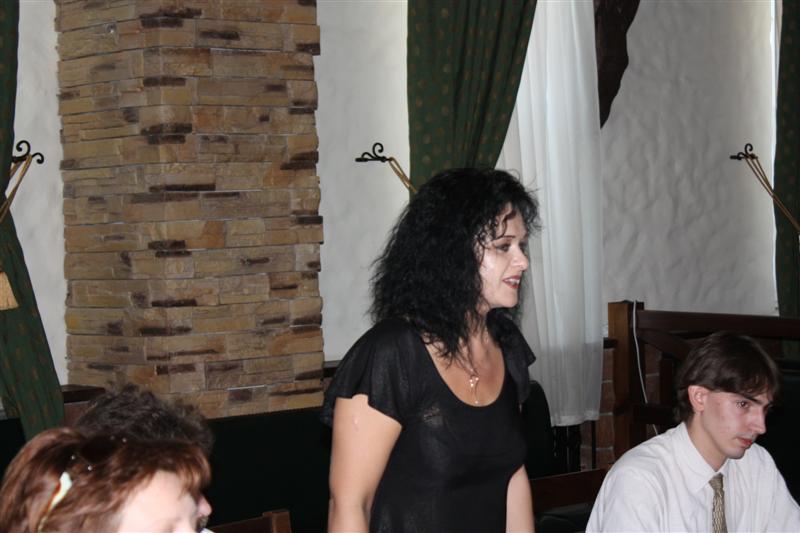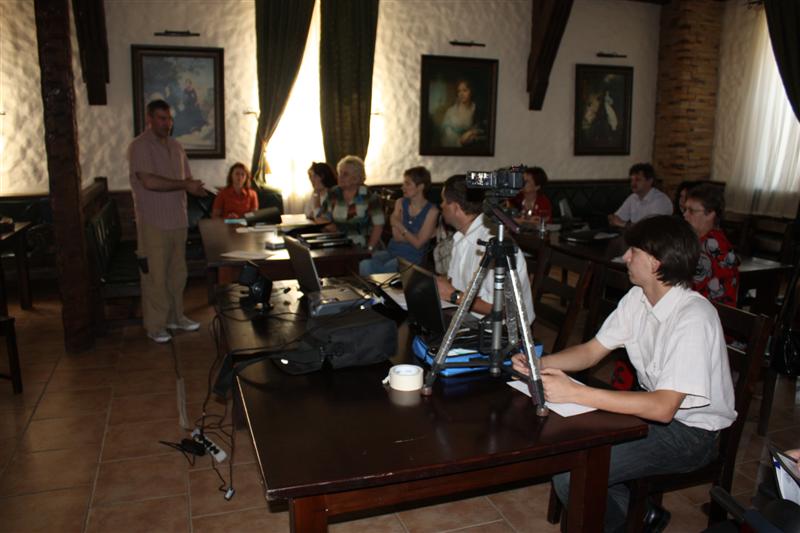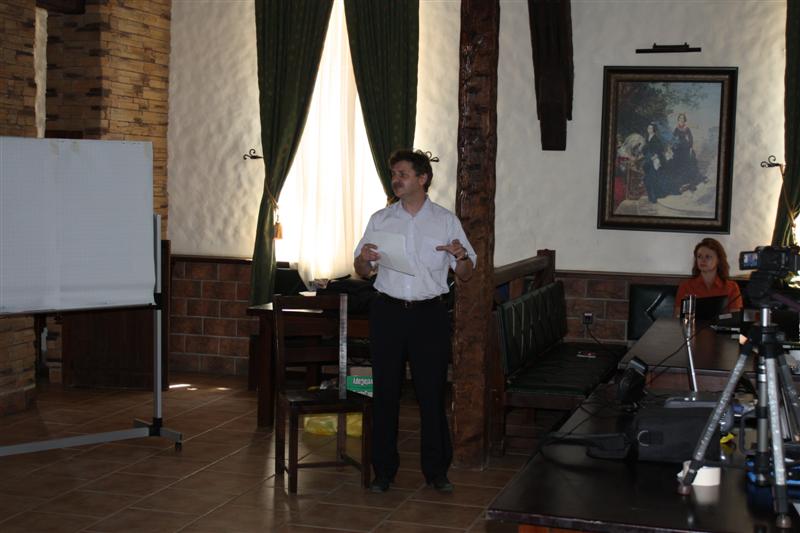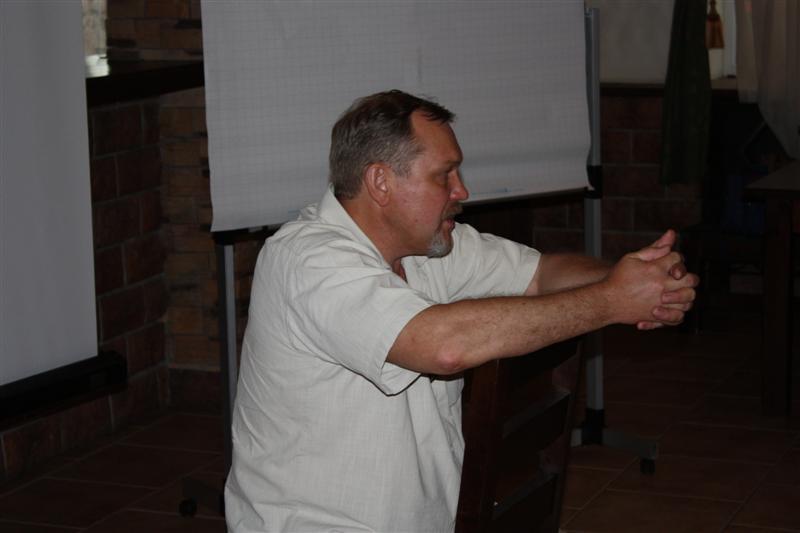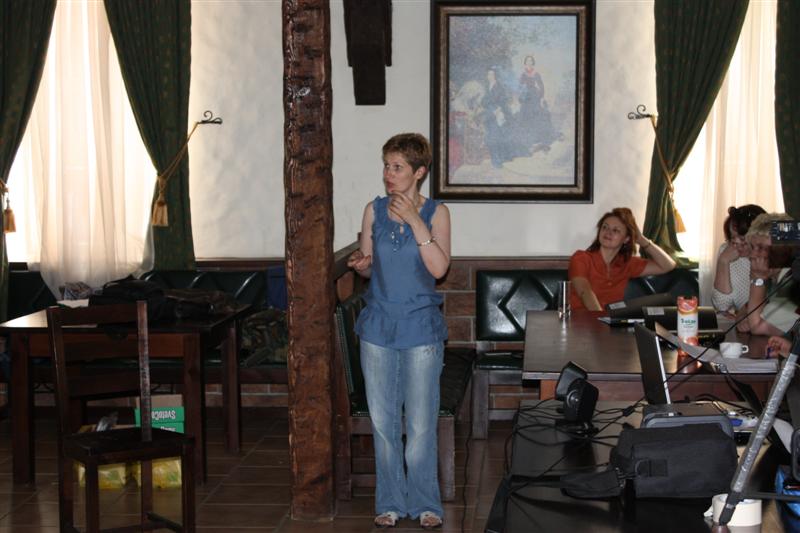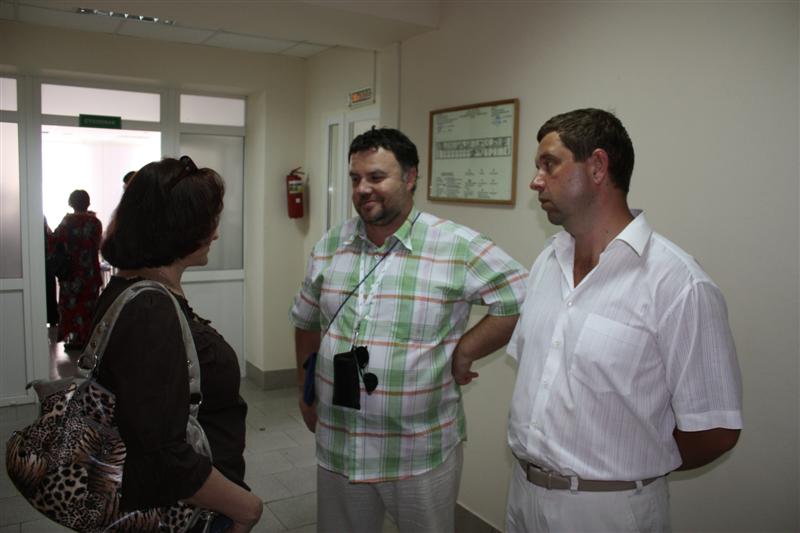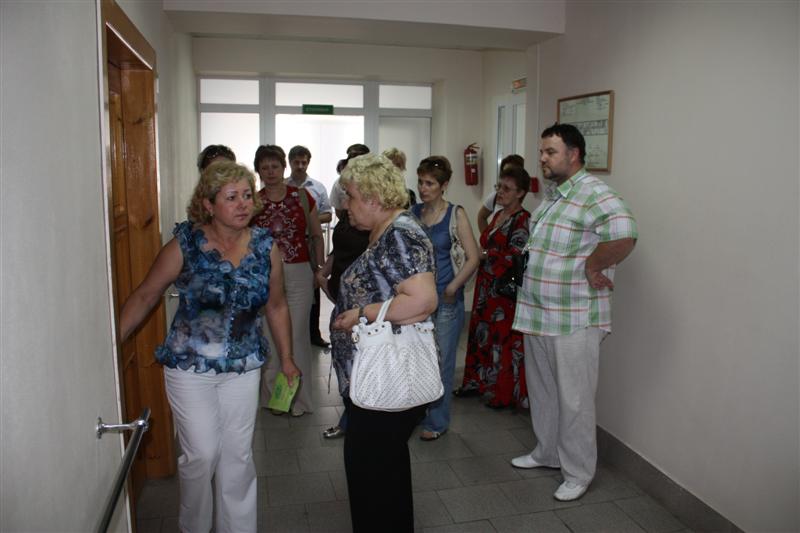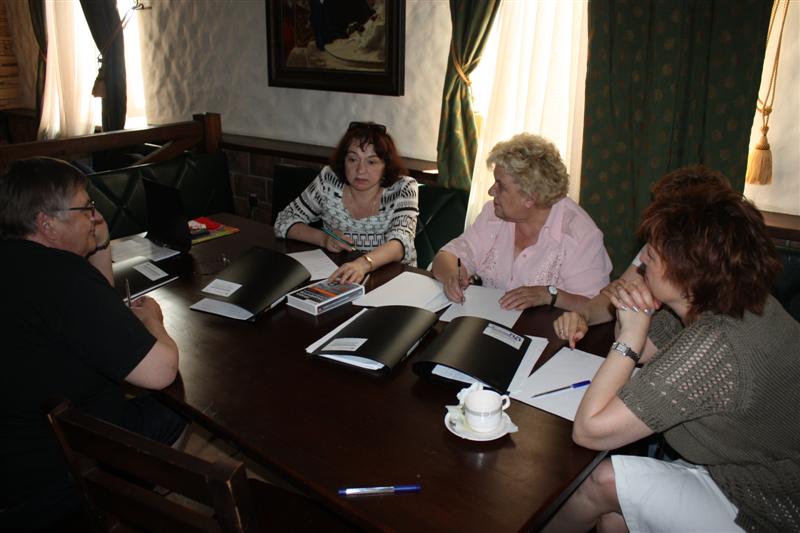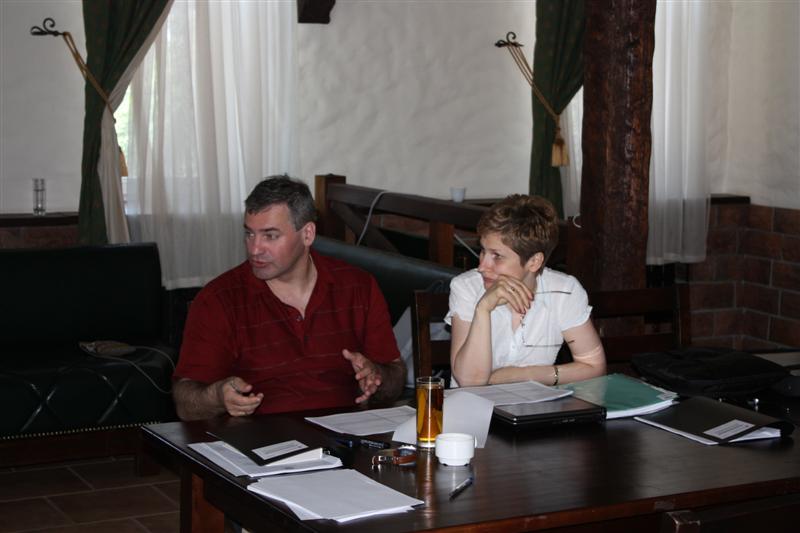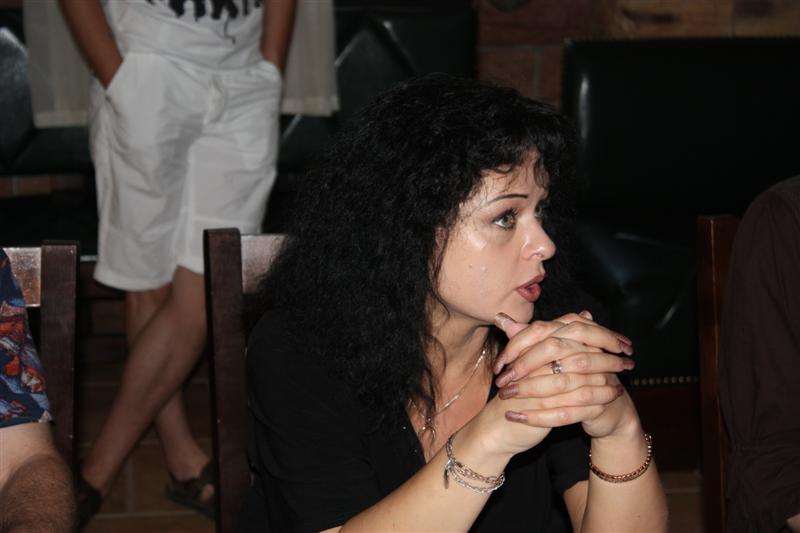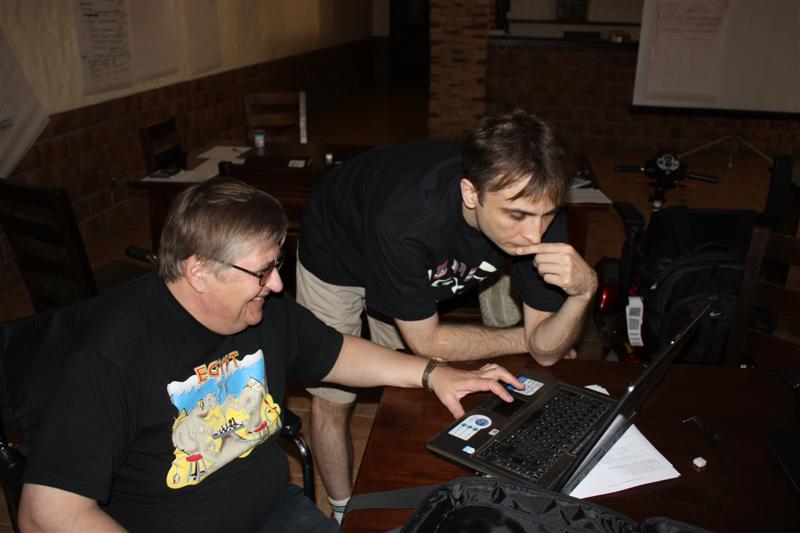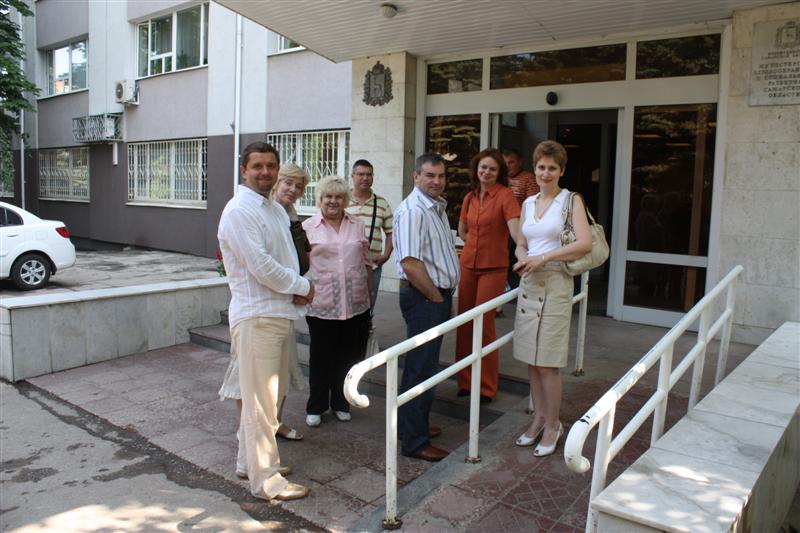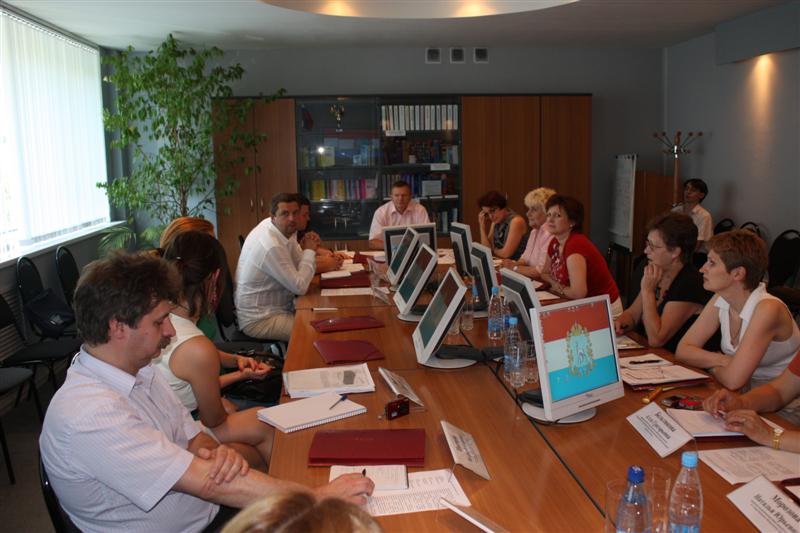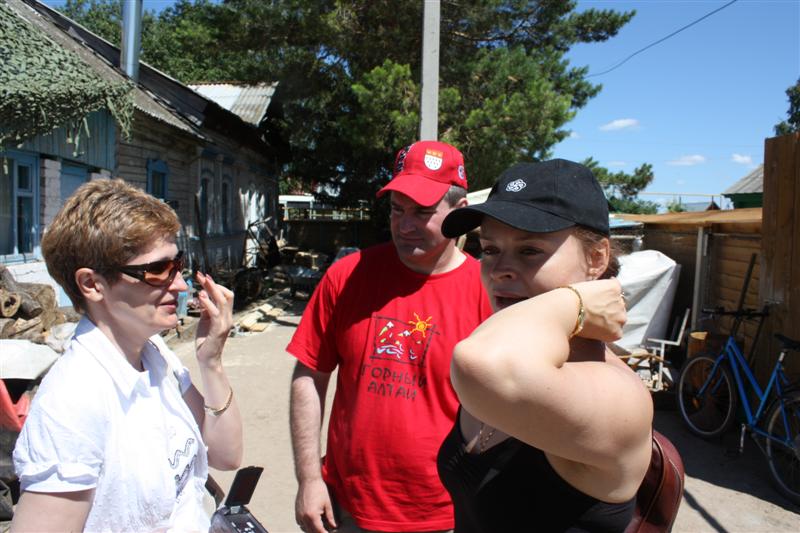This summer has happened to be scorching, and, I am sure, not only analysts of the Meteorologist Office can confirm it. Yet, the hotel complex ‘Russkaya Okhota’ (Russian Hunt), which is situated in an incredibly picturesque and hospitable location near the city of Samara, hosted an event for federal experts of the All-Russian Public Organization of Disabled People with MS (All-Russian MS Society) who felt hot for reasons far from those caused by weather extremes.
From 14 to 18 June, this place was a venue for another Federal Experts School at the All-Russian MS Society. When first seeing the School participants meet on arrival, it was hard to believe that just a few hours later those people, who perform an enormously important work for people with multiple sclerosis in Russian Federal Districts and who are, perhaps, indispensable for someone to imagine the practical activities of the Society in our big country, would start fighting in a working clinch in order to find answers to the major questions: how to make their activities more effective and to improve the quality of life of thousands of PwMS in regions. But they were about to meet not only for the sake of the verbal battle but rather to start and finish it. This is what an expert does: he or she is able to resolve whatever difficult issues with anyone. In doing so, they were greatly facilitated by moderators Oleg Lavrov, the Director General of the Society and Mikhail Churakov, the Director of the Centre ‘Social Mechanics’.
President of the Society Dr Yan Vlasov greeted the School participants with a welcome speech. During the course of the School, the Society President was keen to attend the event sessions and would join discussions if his help was necessary to come to consensus. Dr Yan Vlasov took part in the scheduled meetings including the Round Table with officials of the Ministry of Health and Social Development of the Samara region.
On 14 June, Monday, the School got started with presentations by federal experts and directors of departments at the Society on developments in the territorial constituents and segments of activities of the Society, which was the starting point for the work. The School participants learnt in detail how goals and objectives of the All-Russian MS Society are achieved by the experts in the Siberian, Far Eastern, Volga-region, Central, Southern, Ural Federal Districts of the Russian Federation, as well as on activities in general at the Institute of Plenipotentiary Public Expert (PPE), the Nurse Service and Department of International Affairs at the Society. The speakers were to describe their Districts, to give account of MS-related issues, the PPE Institute activities in the District, and to certainly tell about achievements and problems. It was really hot because of merely the attention the reports were paid to, and the burning questions the speakers had to be taking.
Tuesday and Wednesday added to extended discussions training sessions to master management skills as had been planned and arranged by the Centre ‘Social Mechanics’. That is, the School itself began. It should be mentioned that such training courses are always focused on the specifics in the work of federal experts of the Society, meanwhile the staff of the Centre ‘Social Mechanics’ have a long history of cooperation with the All-Russian MS Society, which has helped both explore each others’ goals and methods of working and such a training be most effective. This, too, made it possible for the School participants to find out functions and types of management, and these skills were immediately translated through exercises and following sessions into practical activities of the experts in terms of, for instance, delegating problems to resolve, monitoring and motivating activities.
For this School in Samara, the organizers had invited representatives of International MS organizations: the Multiple Sclerosis International Federation and the European Multiple Sclerosis Platform. Julie Deléglise, EMSP Policy Officer could attend the second part of the School and its sessions. On 17 June, Thursday, School participants, guests, the EMSP representative and the officials of the Health Ministry worked together at the Round Table ‘The System to Rehabilitate Disabled People in the Samara Region’, in the course of which the attendees listened to presentations by Evgeniy V.Khanzhin on ‘Perspectives and potentials to develop a rehabilitation system’, Oleg V.Lavrov on ‘Legal aspects of providing rehabilitation services in the Russian Federation’, Marina E.Tselina on ‘The system to rehabilitate disabled people in the Samara region. Operations on social integration of disabled people and ensuring barrier-free environments.’ The Round Table participants had an active discussion of the topics on the agenda, and the EMSP representative answered several questions.
On the fifth day of the School, the attendees had to split when part of the experts together with moderators conducted a working session during a boat trip down the Volga river, while the others, including EMSP representative Julie Deléglise, PPE in the Ural Federal District Andrei Frolov, and director for international affairs at the Society Pavel Zlobin took part in the opening ceremony of the Thematic gatherings at the Rehabilitation MS Centre ‘Bereza’ and met patients undergoing a rehabilitation course at the Centre. The patients from all corners of Russia were extremely attentive listening to the presentations by the School participants on rendering assistance to persons with MS in Russia, interaction between the All-Russian MS Society and international MS community and associations, activities at the EMSP as key European MS organization that consolidates 37 member societies. Of course, Julie Deléglise had to answer questions that sometimes were off-the-wall. For example, if there is a way to compare standard treatment courses for MS in the EU and Russia, if the EMSP could assist a Russian subject should he or she have an MS relapse in an EU country, if Julie had a direct involvement in MS that seems to be normal for MS society staff in Russia, and in which capacity Julie had worked with disabled people before – an allusion to her earlier responsibilities with the European Commission. As a surprise came a question about Russian PwMS carrying DMDs within EU countries, which would rather say about increasing capabilities of Russian PwMS and their feeling secure tomorrow.
No need to say common words about how necessary the School might be as an additional educational resource as well as other accompanying sessions that indeed leave no time to relax. Infinite significant questions either were answered or became part of the agenda, which governs practical activities of the Society. Face-to-face contacts, interaction between colleagues and arduous work of PPEs in Federal Districts are all necessary for activities of the All-Russian MS Society to grow and be successful in remote regions, and on behalf of Russian PwMS’s, please, allow me to bring my big THANK YOU to these people!
***
Organizing Committee:
Yan Vladimirovich Vlasov, President, PwMS RPO
Oleg Vladimirovich Lavrov, General Director, PwMS RPO
Alla Grigoryevna Beltyukova, Director, PPE Institute, PwMS RPO
Oleg Yuryevich Ipatov, Director, Information Service, PwMS RPO
Tatyana Ivanovna Bezhanova, Plenipotentiary Public Expert for the Volga
Federal District of the Russian Federation, PwMS RPO
Trainers and moderators:
Yan V. Vlasov, MD, Assistant Professor, Neurology and Neurosurgery Chair,
Samara State Medical University
Oleg V.Lavrov, PhD, Assistant Professor, General Director, PwMS RPO
Alla G.Beltyukova, PhD, PPE Institute, PwMS RPO
Margarita V.Mikheeva, Director, Nurse Service, PwMS RPO
Oleg Yu.Ipatov, Director, IT Service, PwMS RPO
Mikhail V.Churakov, PhD, Director, „Social Mechanics‟ Centre
Alexander G.Stashenko, business trainer, „Social Mechanics‟ Centre expert
PPEs in Federal Districts at the All-Russian MS Society:
Feodor V.Shishlyannikov on situation in the Siberian Federal District
Anna A.Gavrilenko on situation in the Far East Federal District. Discussion
Igor V.Tsikorin on situation in the Central Federal District. Discussion
Andrei L.Frolov on situation in the Ural Federal District. Discussion
Natalia F.Kichigina on situation in the South Federal District. Discussion
Tatiana I.Bezhanova on situation in the Volga Federal District. Discussion
Also:
Julie Deléglise, Policy Officer, European Multiple |Sclerosis Platform, Brussels
Pavel Yu.Zlobin, International Affairs, All-Russian MS Society
_______
Pavel Zlobin
Vice-president, All-Russian MS Society
